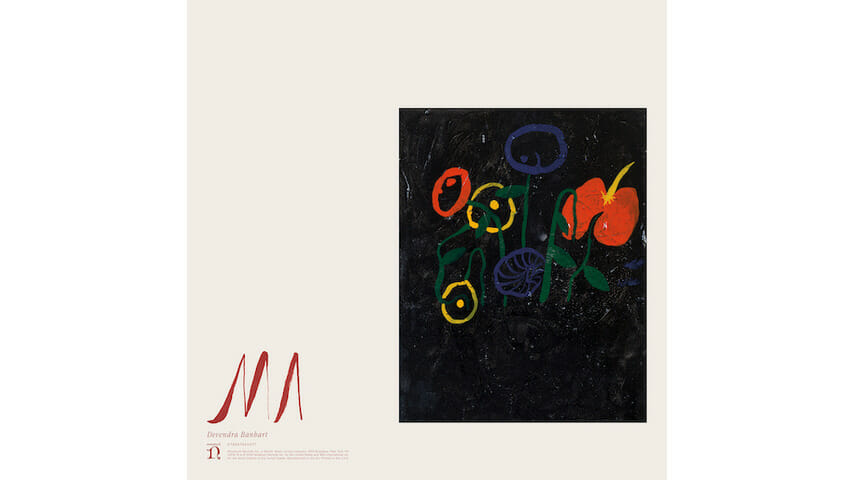Devendra Banhart Embraces Motherly Love on Ma
New album features the singer’s most cohesive songs yet
Music Reviews Devendra Banhart
When Devendra Banhart released his fragmentary 2002 album Oh Me Oh My, the bits and pieces of songs felt like an intimate glimpse into an itinerant life. Recorded in friends’ apartments and other makeshift spaces in cities around the world, the album was a jumble of lo-fi production values, wandering tempos and fantastical, possibly stream-of-consciousness lyrics. It was also the lynchpin of “freak-folk” in the 2000s (a term soon considered insulting by many of the people it was applied to), and the bearded, beatific Banhart became something like a spiritual guide for the scene.
His music over the intervening years has often been considered experimental, even as it has become less overtly rooted in psychedelic folk. Though it’s certainly an intimate record, Ma, his latest, retains few other markers of his eclectic origins, emphasizing instead the most cohesive songs and sophisticated arrangements that Banhart has delivered to date. It’s a chamber-pop record, full of string arrangements and woodwinds alongside acoustic guitars, bass and drums.
As the title suggests, Ma is ostensibly about maternal love, and not always in a literal sense. Though he sings lovingly about his own mother, and the bonds between mothers and children in general, there are also several songs about Venezuela, a sort of motherland where Banhart spent much of his childhood.
Opener “Is This Nice” seems to come from a mother’s perspective, offering whimsical encouragement to a wandering son whose calling as a musician takes him far from her side. As the son in question, Banhart offers himself understanding and advice in the voice of a loving mother when he sings, “You cannot give up / Music yet to be made,” his voice soft and comforting amid sweetly swaying strings that switch in and out of plucked pizzicato parts, along with subtle synths and a spare but authoritative drum beat. Later, there’s nothing playful about “Memorial” as a mother (presumably) mourns for a child who has died, a broken bond now forever beyond repair. Banhart murmurs his vocals through a curtain of somber strings, strummed acoustic guitar and a resonant, funereal piano part.
His songs about Venezuela could easily have been as dark, but Banhart manages to find a sliver of optimism, even as a political crisis has sparked rampant inflation and shortages of food and medicine. Rather than focusing only on the hardship on “Abre Las Manos,” Banhart sings in Spanish of the country’s beauty, accentuated by a dreamy arrangement of guitar, strings and percussion over a quietly mesmerizing Latin rhythm. It’s one of three tunes Banhart sings in Spanish; another, the sensual, romantic ballad, “Carolina,” is in Portuguese.
Sometimes the love-y theme becomes a bit cloying. “Now All Gone” feels like an attempt to recapture the abstract weirdness of Banhart’s earliest efforts, pairing a slippery, rhythmic guitar part with staccato vocals on lyrics that come off like advice from a fake psychic (“You must give up control in order to win / Desire’s the house we’re all still living in”). Cate LeBon sings backup, but she might as well not be there at all.
But Vashti Bunyan, the ’70s psych-folk singer credited with influencing the 2000s revival—and another mother figure to Banhart—gets a better vehicle on the album-closing duet “Will I See You Tonight.” Bunyan’s plush, dramatic voice intertwines with Banhart’s on a whispery melody, as rich string charts and piano drift lazily through lyrics about the redemptive properties of love. The song feels like a benediction, and it’s a powerful way to finish the album. It’s also a sign that even on a collection of highly structured songs with little room for improvisation, Banhart remains the distinctive artist he’s always been.